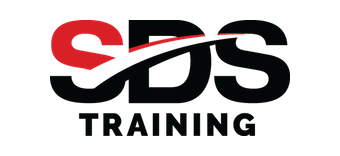 If you're working in or eyeing a career in construction, mining, or heavy industry, two certifications are likely to come up again and again: Working at Heights and Confined Space Entry.
If you're working in or eyeing a career in construction, mining, or heavy industry, two certifications are likely to come up again and again: Working at Heights and Confined Space Entry.
And it's not just about ticking boxes. These two short courses are considered must-haves across multiple sectors — and getting them could be the reason your application makes it to the top of the pile.
Whether you’re in civil construction, mining, manufacturing, or even local council maintenance, many roles require you to enter spaces or work in environments where the risk of a fall or limited oxygen is high. Having a current, nationally recognised ticket proves that you not only understand the risks but can apply safety procedures confidently.
What the Labour Market Says
According to the Australian Government's Labour Market Insights, demand for skilled workers in construction and infrastructure will continue rising through 2026 and beyond, driven by billions in project investments nationally and across Queensland. These roles increasingly favour job seekers who are already ticketed in essential safety skills like Working at Heights and Confined Space.
Combine this with Queensland's strong pipeline of renewable energy, rail and regional development, and it’s clear that safety-compliant workers are in demand.

Why Safety Training Matters More than Ever in Queensland
Queensland isn’t just growing — it’s transforming.
Right now, billions are being poured into renewable energy, rail, civil infrastructure and regional development. That means more jobs across construction, utilities, mining, and government — but also a stronger demand for workers who hold the right safety tickets.
To stay compliant on these worksites, employers require workers to be trained in nationally recognised units like Working at Heights and Confined Space.
"These aren’t just “tick-the-box” tickets — they’re essential for accessing restricted zones, entering tanks, pits or tunnels, and working above ground."
Here is Where the Demand is coming from:
- Cross River Rail & Inland Rail Projects: Queensland’s biggest transport projects are already underway. These multi-year builds involve tunnelling, overhead work, and tight-access construction zones — which all require safety-compliant staff.
- Renewable Energy Boom: Under the Queensland Energy and Jobs Plan, the state is transitioning to 70% renewable energy by 2032. From solar and wind farms to hydrogen and battery storage — these large-scale builds demand workers trained to operate safely at height and within confined areas.
- Regional Civil Infrastructure: Local and state governments are funding major projects across regional hubs — including roadworks, water treatment, and utilities upgrades in places like Rockhampton, Gladstone, Townsville and Toowoomba. These sites often require entry into pits, tanks, and underground systems, where confined space training is non-negotiable

The Bottom Line..?
"In today’s job market, safety qualifications like Working at Heights and Confined Space go beyond compliance — they open doors. Whether you're looking to step into site leadership, stay competitive in high-risk sectors, or boost your versatility across job sites, these skills are increasingly non-negotiable."
Which Industries Require It?
- Civil Construction: Infrastructure jobs often require workers to climb structures or enter confined utility spaces.
- Mining & Resources: Working underground or at height is part of daily site life.
- Energy & Utilities: Maintenance often involves elevated platforms or enclosed systems.
- Transport & Rail: Tunnels, bridges, and elevated worksites are the norm.
- Local Government & Emergency Services: Teams are increasingly required to work in risky environments safely.
What You Can Expect from the Training
While the courses are short, they pack in essential skills like:
- Risk assessment and hazard identification
- Proper use of safety gear and rescue procedures
- Legal responsibilities and workplace safety systems
Even better? These courses are usually just 1 day long, and can be completed locally at approved training facilities.
Employers see these certifications as non-negotiable for safety and compliance. Holding them not only means you’re ready to start work right away — it shows you’re serious about site safety and responsibility.
Now is the time to get qualified!
Whether you're adding to your existing resume or stepping into a new industry, these tickets help you stay competitive and site-ready.
Upcoming training available in Maryborough and Rockhampton – Book your spot today






